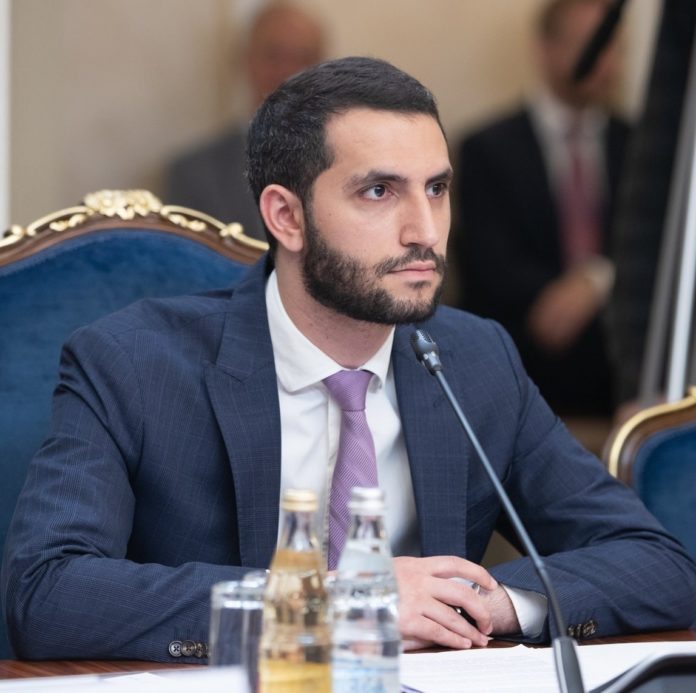YEREVAN – Ruben Rubinyan, chairman of the Armenian parliament’s Standing Committee on Foreign Relations, on October 7 spoke about various international relations aspects of the current Azerbaijani attacks against Artsakh and Armenia.
He pointed out that Nagorno Karabakh obtained its independence from Soviet Azerbaijan in full compliance with the constitution of the Soviet Union, according to the clause which stipulated that if a republic initiates withdrawal from the Soviet Union, autonomous entities like that of Karabakh may conduct referendums for this purpose, which Karabakh did do.
Legally, he said about a series of United Nations Security Council resolutions on Karabakh which were passed in the 1990s, “Azerbaijan always likes to underline what it likes but does not underline the most important part of those resolutions, which is about the fact that fighting should be stopped, meaning that the use of force is unacceptable. So Azerbaijan has been consistently acting against those resolutions.”
Furthermore, he said that the most widely accepted format and framework of talking about the Nagorno Karabakh conflict is that of the Minsk Group of the Organization of Security and Cooperation in Europe (OSCE). For decades, negotiations have taken place in this framework, and the principle of self-determination was and is one of the basic principles of this framework.
As far as the current fighting goes, Rubinyan said that simple logic indicates that it is Azerbaijan which is the party interested in starting a conflict. There were many statements made this year by Azerbaijani officials pointing in this direction, and at non-public reactions, Rubinyan said most of Armenia’s international partners recognize this.
There are also public reactions, such as President Emmanuel Macron of France averring publicly that Azerbaijan started the war. Rubinyan said, “During this war, there has been a certain shift in the understanding of this conflict among our international partners.” He gave as an example the statement of High Representative of the European Union for Foreign Affairs and Security Policy and Vice President of the European Commission Josep Borrell on October 7 in the European Parliament. Borrell said that when he spoke with the foreign minister of Azerbaijan it was worrisome that the latter put forth preconditions to a ceasefire.










